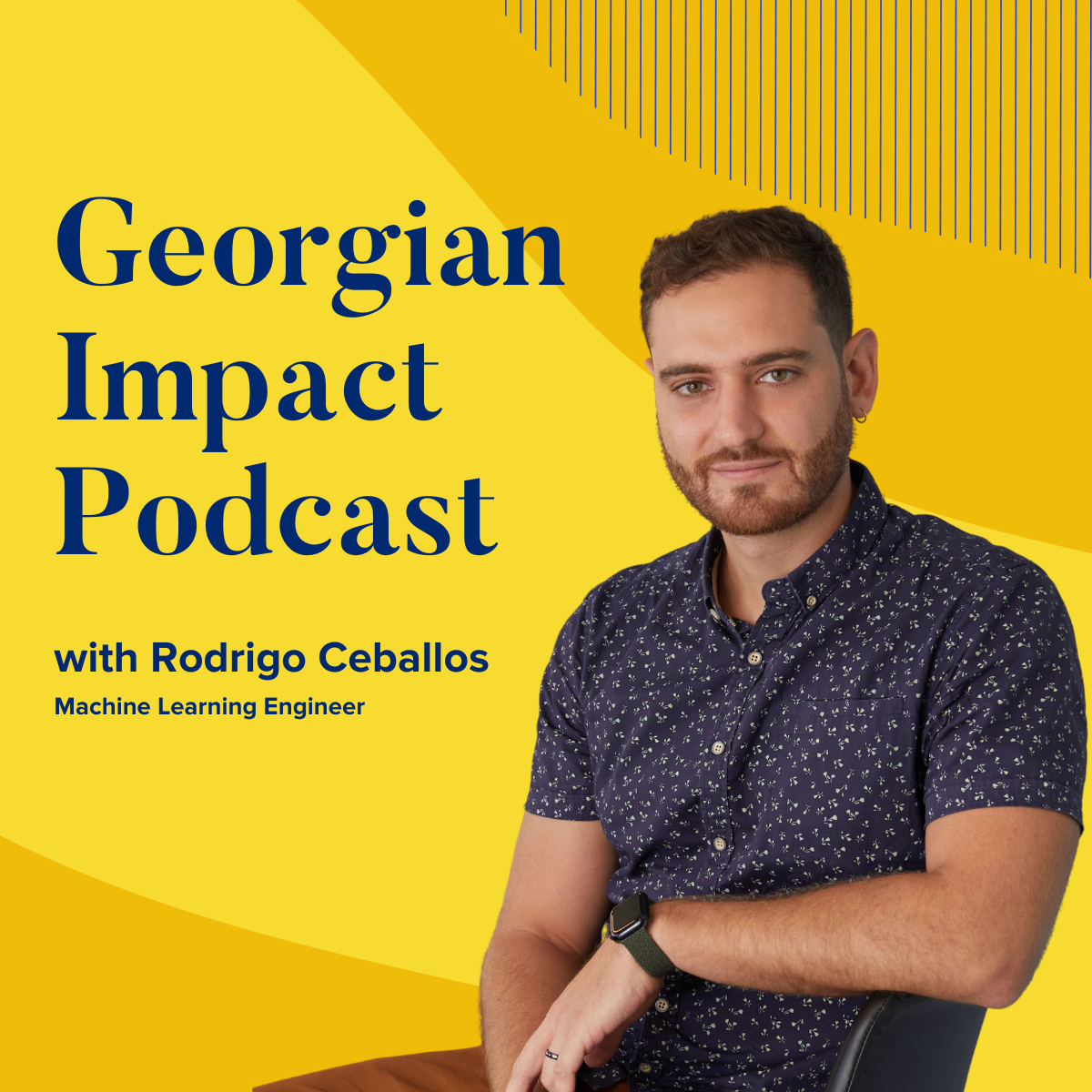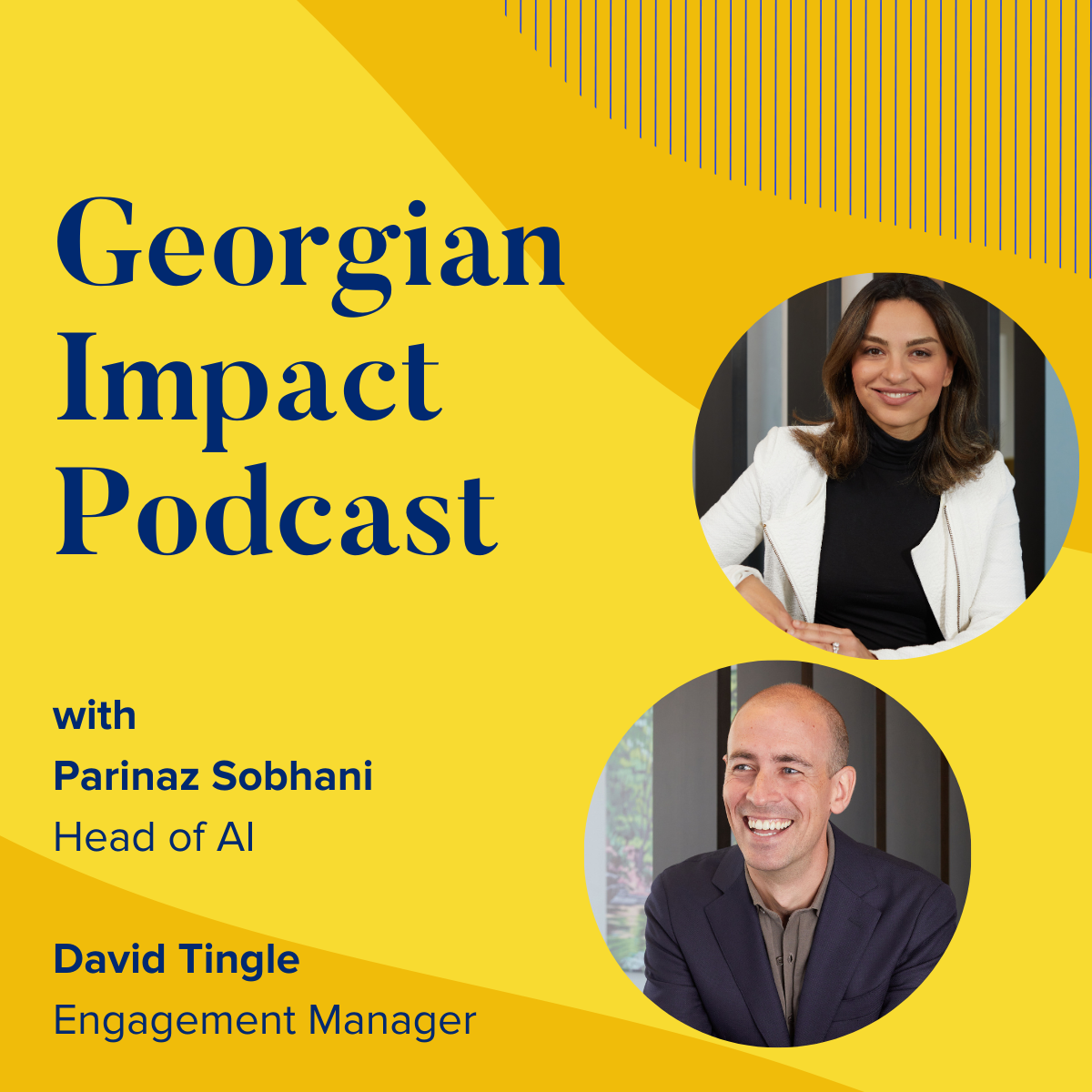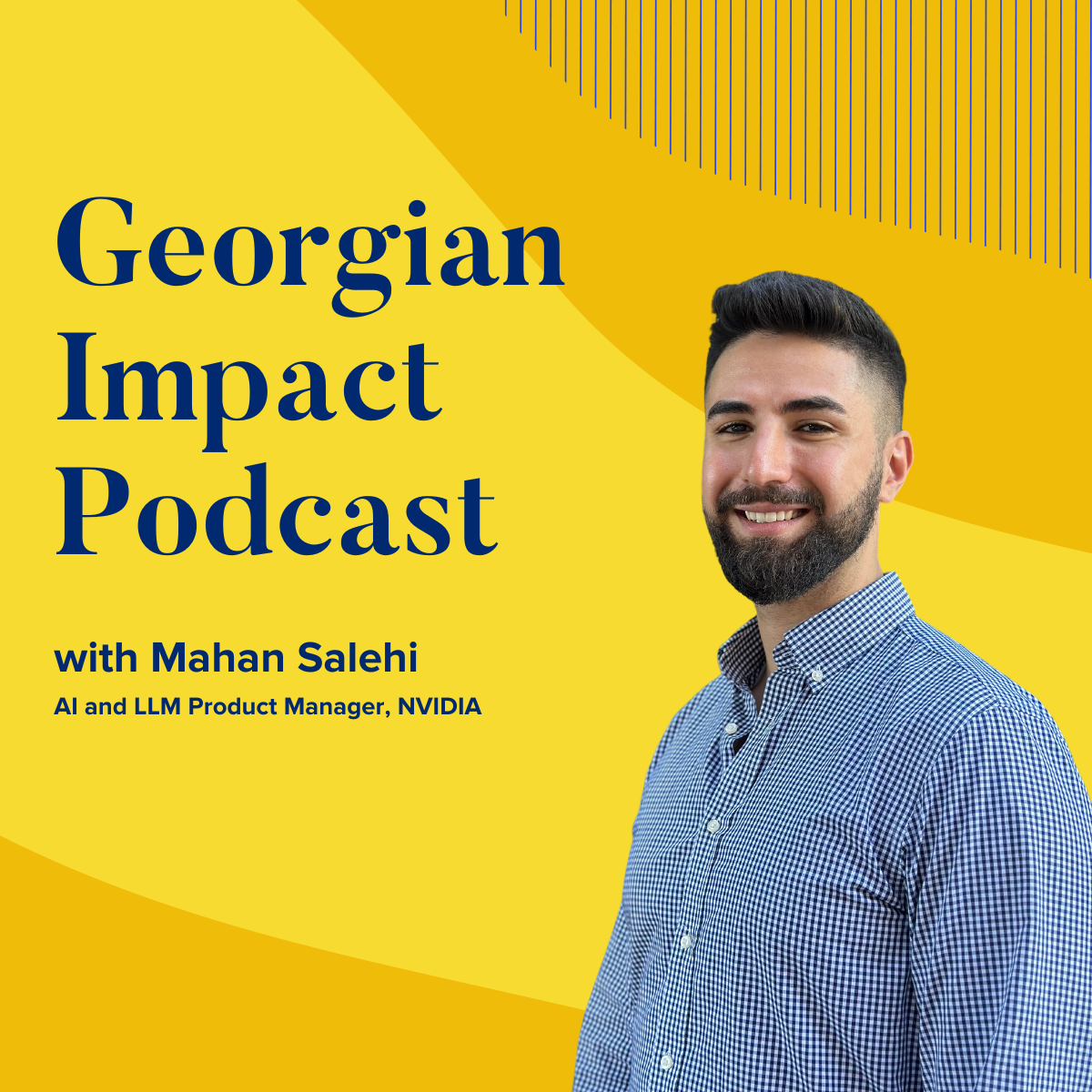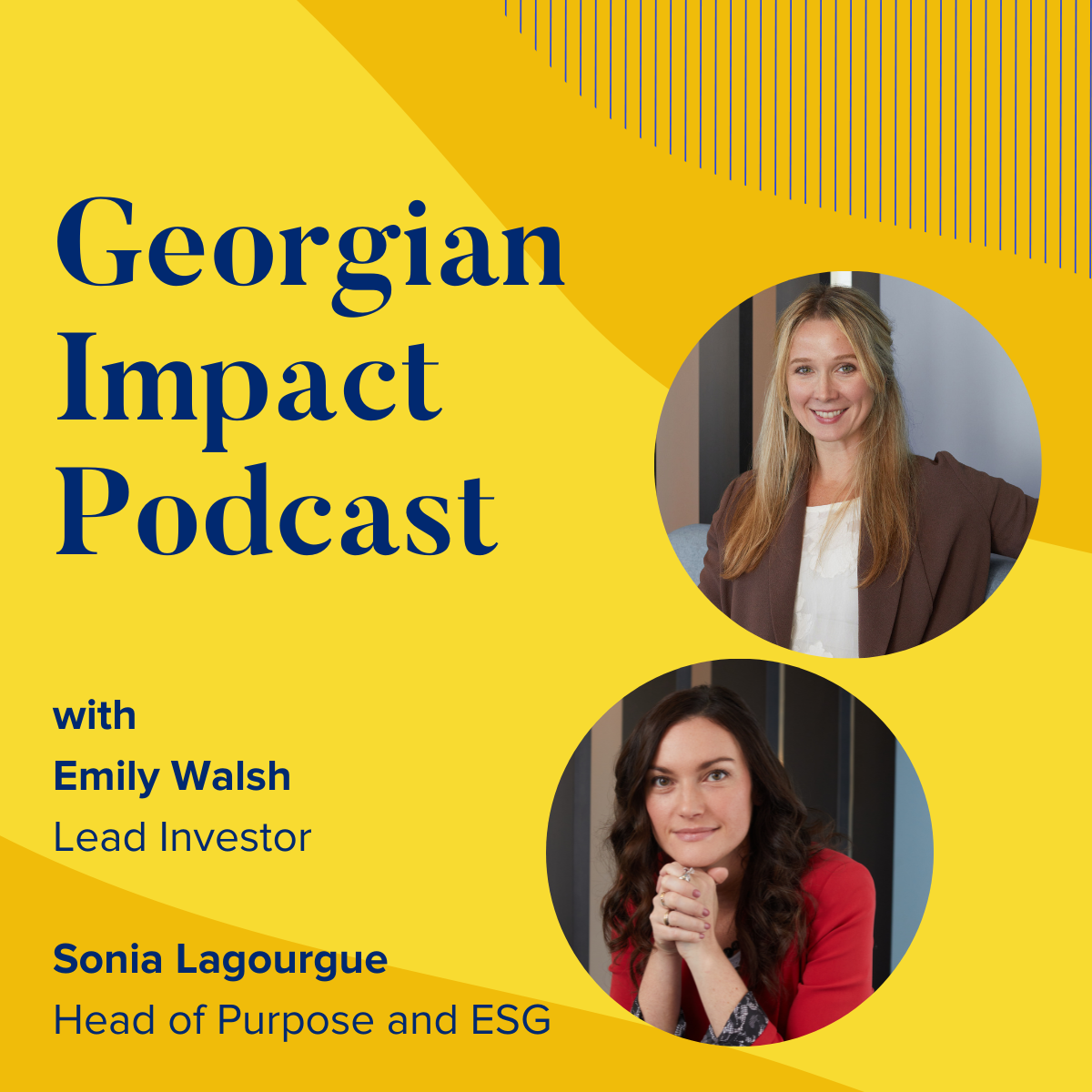Episode 104: Understanding Quantum Computing and its Use Cases
- 0.5
- 1
- 1.25
- 1.5
- 1.75
- 2
John Prial: We are living in clear Holy cow moments. Now we've seen the first picture of a black hole, and we really are seeing some massive recognition of the issues with data privacy and trust that can significantly affect companies. But at the end of the day, it's just about data and compute power. And we have gone from basic discussions of Moore's law to quantum computing. Let me read a quote from CB insights," Quantum computing is poised to upend entire industries from telecommunications in cybersecurity to advanced manufacturing, finance medicine, and beyond." That if your head doesn't hurt enough, let me just add one more quote," In the near future, quantum computing could change the world." All right. I think I've got everyone's attention. So how do we get our heads wrapped around the technology that just might change the world? Today's guest is here to help today. I'll be talking with Dr. Vlad Giorgio. Vlad is the CEO president and co- founder of software queue, Inc. And he's also a researcher at the Institute for quantum computing. We're going to parse the full hardware and software stack that is quantum computing, which will help us all understand what's different about quantum computing and later we'll delve into where Vlad expects to see this technology deployed first and why it's important today. Now as an aside episode, 97 with Mike Brown was our first podcast on quantum computing and it covers some of the foundational definitions for you. So respecting you, we don't want to repeat, so please go back and give it a listen. If you need a quick refresher today, we all learning about this emerging technology and I'm excited to bring you this next installment of quantum computing, a potential game changer for us all. I'm John Pryor and welcome to the Georgian Impact Podcast. So Vlad let me do my lightweight view of quantum one on one and you can help me here. Obviously we know quantum is different from classical computers. What we have these simple binary bits that are zeros and ones, and we shared an earlier podcast about cubits and they can take many States, not just zero in one, these probabilistic States and the switches of States allows for faster and more powerful computing. I think we get that. So where are we today with a density count for cubits?
Vlad Giorgio: So today we are in the range of 50 cubits. So it's a relatively small number of cubits available out there. IBM has around 50 INQ has actually 79, but not all of them are working fine. Google has around 70 cubits. Now all of those platforms that I mentioned now are something called a universal quantum computers. So in principle, they can solve any quantum algorithm. There are some other machines that have many more cubits like D- Wave that you probably heard about. And it's a Canadian company in Burnaby BC. So D- Wave has right now around 2000 cubits, but those cubits are different. So they are more noisy than the one provided by IBM or Intel or Google. Those 2000 cubits can perform some tasks, but not every possible quantum algorithm. So in a sense, the D- Wave machine is not what we call a universal quantum processor.
John Prial: Wow, that's quite The range. So while everybody's out there counting cubits, it's not the number that's telling us the full story, as we think about some of these things being noisy or not. And for me, it reinforces that we're just in the early stages here at the same time, we should reminding everybody that the potential value writing on this is huge. So Vlad, what do we need to see in order to solve both early use cases and then some more advanced quantum problems?
Vlad Giorgio: Yeah, that's a very good question, John. And I think something around 200 to 300 cubits will allow us to see some interesting developments in quantum algorithms, especially for small scale quantum computers in the near- term future. In order to solve important problems. I think we'll need more than that, probably of the order of thousands of good qubits, but nevertheless, for relatively small problems where you can already see a quantum advantage. My guess is that once we hit around 100 to 300 qubits, we'll already be able to see interesting phenomenon.
John Prial: That's interesting. I know we're on this journey from noisy to not noisy would this analogy help everybody? So I know that no one really thought about what could be done with a GPU graphical processing unit, but because it was so massively parallel, all of a sudden GPU chips have accelerated this machine, learning AI deep learning world. And although perhaps I'm not being technically accurate is this advent of, of cubits and Quantic breeding similar to that. And I see you've got both a specialized in a non specialist use some hearing?
Vlad Giorgio: Yeah. I mean, in principle, a quantum computer is going to be used most likely as a core processor. So we don't expect to use quantum computers to write your favorite document in Ms. Word, or it's almost like it's going to be a core processor, which was going to be used to speed up certain classes of problems. Even if we use a quantum computer as a core processor, there are these two types of quantum computers, like the annealers that are the D- Wave machines that are used for an even smaller class of problems. And then the so- called universal quantum computers that are able to speed up in principle, many more, many other quantum algorithms that the D- Wave presumably right now it's not possible to do so.
John Prial: Is it fair to call it universal? I mean, you're saying it's not good to be used, say a Ms. Word. It's going to be a co- processor, but whether it's a very specialized solution or maybe a more broadly specialized solution, because obviously there is a range here. Are we ever going to end up with a generalized base that programmers get access? And you say like a TensorFlow
Vlad Giorgio: In a sense, the universal is a bit of misleading the term. So we're not going to be able to solve every problem in the world. Using quantum computers, we are going to be able to solve a relatively small class of problems at least today. And then of course, we're going to come up with better and better quantum algorithms. So probably are going to solve more problems, but some of the problems are not suitable for the quantum computer. So it doesn't even make sense to use the quantum computer
John Prial: Is even similar, when we say everyone gets excited about deep learning saying, don't don't just start with deep learning. There's lots of other machine learning methods that people could use today that is simpler and make sense. And eventually as sophistication as needed, you might end up in a deep learning world. Is that another fair analogy?
Vlad Giorgio: Very actually it's a perfect analogy. So true. So many people are trying to use even today. They're trying to look at quantum algorithms for some problems, which in my opinion, doesn't make sense to use a quantum computer for so that's a very, very good analogy.
John Prial: Perfect. Now I want to just finish up on hardware, really talk more about these quantum algorithms and that opportunity, but it's everybody always gets into competition. So I know there's at least like a half a dozen different quantum technologies, whether some are superconducting in Silicon based in photonic and others. So I guess my question is, will we are they all going to be out there in the future with unique specialized unit uses or do you think at some point there's a winner. How does this compare to the traditional chip transistor chip world?
Vlad Giorgio: It's very difficult to predict. So everyone bets on their own technology. I mean, there are three main technologies that are the superconducting cubits. Then there are the Photonix and ion traps. So those three are the main technologies out there. All of them have their own advantages and also their own challenges. I cannot predict it's a little bit too early to say what architecture is going to is going to be the winner in classical computer. We have a winner, right? So it's the Silicon based architecture. So all of the chips revolve around that Silicon based architecture here is even more dramatic. I mean, they are fundamentally different physical architectures. It will be great. Actually, if we have three types of quantum computer competing platforms, for example, because we are going to be able to find advantages for some problems for specific platform and some advantages for another platform. My hope is that we are going to have at least couple of good quantum architectures, but right now it's a bit too early to say. So it's still at the research phase trying to build scalable quantum computers. There's a great way to set up kind of the discussion, getting to software and marketing and use cases.
John Prial: So let me, in my mind, as I look at this, there's either using quantum to process huge amounts of data. Yeah. Everyone says we could do a better job of predicting whether if we had more data and of course, with internet of things, we're going to have more and more data, or we need to have these extraordinary processing speeds parallel of course, to break cryptography. Are those the two major use cases that we'll be enabling?
Vlad Giorgio: So indeed the first use case is the more scary one is in cryptography. And for that, we have very clear algorithms or like short algorithm that breaks public key cryptography. So that's, that's a very, very definite use of a quantum computer. Fortunately, we are protecting against that and you probably talked before about the steps we are taking to protect against quantum attacks like in the realm of post quantum cryptography. The other use case is in the processing large amounts of data, of highly correlated data. And for that, there are various candidates, various quantum algorithm candidates. So one of them is famous Grover searching, which allows you to search data faster than any possible classical algorithm. Then there are a variety of so- called quantum machine learning algorithms that in principle should allow you to filter through the data and obtain results faster. And there is another algorithm actually, which is promising as a sub- routine in quantum machine learning, which is called AGL algorithm. So that's used to speed up solving linear system of equations. Those sub routines of solving linear systems appear in many, many problems in optimization problems and so on. So that will be a quantum computer will be used as a co- processor there and in principle can speed up that task. So it will allow you to perform any tasks that require solving linear systems much faster, in fact, exponentially faster for some class of problems.
John Prial: So at the basic level for software, obviously we have systems, software operating systems and other subsystems that are built around that. And of course, we've got middleware that enables a more rapidly deployment of the applications that run on top of that. Is this layering the same for quantum or is, should I think a little more when you talk in Silicon what's different here?
Vlad Giorgio: No, it's very similar. So a, so for quantum there, we also have a stack. So we start with a logical algorithm that we write on a piece of paper, or we describe it as a code on a classical computer. Then the next layer in the circuit is something that we call the quantum circuit representation of it. So we translate that logical description of the algorithm into a sequence of so- called quantum Gates. That's very similar to the assembly language that's generated by a classical compiler. Then at the next step, we take that sequence of Gates. We perform optimization on it. So it's what the compiler does classically as well. It takes some initially generated code and then it tries to remove redundancy in the code to make it shorter. Finally, we take the assembly language as the quantum assembly language, which describes our sequence of Gates. And then we transform that into physical instructions that target the quantum chip. So those will be like sequence of laser per policies or magnetic fields depending on the, on, on the architecture. So the stack is relatively similar to the traditional computation stack is just the layers in the stacks that are different. And so we don't target chips and Silicon, we target the quantum chip.
John Prial: But you talked about, there are different types of algorithms. And I think you mentioned one of them might be a search algorithm. And what I had read somewhere is in the old style of computing, if you wanted to find a specific number, phone number in a telephone book, my apologies to those that are so young, they don't know what a telephone book is, but you would literally sequentially search every number until you found a match and with positive...
Vlad Giorgio: It happens simultaneously.
John Prial: So my question to you then is does that search algorithm manifest itself at a higher level API that eventually any company doing software development can work on and it gets routed off to the right quantum machine? Or is there, is there more work to be done as a CEO and programmers? Think about the advent of quantum.
Vlad Giorgio: So first let me just make a minor, minor correction.
John Prial: Sure please do.
Vlad Giorgio: The quantum search, it doesn't do it actually simultaneously. It does it in square root of N operations instead of doing N queries searching for all N possible entries in the phone book, it does it in square root events. So if you have 1 million entries in the phone book, then a quantum search will do it in 1000 queries. So it will only flip 1000 quantum pages, which is still a very counter intuitive. Yeah. And it's quite quite interesting because that works for unsorted databases. Of course, if you sort your database, you can do much faster searches, but for answering databases, this is quite a, I find it there's a phenomenal result. We need to perform a lot of classical control on the quantum computer. So in a sense, we use classical computers to keep the quantum computer alive. Now, if you start counting the resources that you need in order to do that, you're going to see there is a trade- off. So for some searching spaces, it doesn't even make sense to run Grover because of the induced by this quantum error correction. I so we'll will have some applicability, but not for every type of problem. If you're looking to search for a a hundred elements, you better don't use Grover because it doesn't make any sense whatsoever from a business case and from a business perspective and in terms of the overhead. So I would say that people should be aware of the trade- off. So what we are trying to do at our company is to educate people also about the catches of quantum computing. So it's sometimes it's over- hyped and many things that, Oh, it's going to solve the world crisis is not going to do that. I mean you have to carefully select your problems so that you have a business advantage. And that's something that many executives are not aware of.
John Prial: This is great. And this is exactly what we wanted to get to in terms of what's real, not tomorrow, but over the next year or two, and what executives should be thinking about. So I'll might be going on a limb here. It might be obvious to everybody deep learning obviously will bloom, I think will be an early opportunity area at the same time. As I mentioned earlier, deep learning, isn't going to be for all. You could use some basic ML Models. So for Companies that are kind of pushing the envelope, what would type of use cases would you expect to see them? I love obviously it's volume. You're not going to this, I guess, Grover is this cool search thing for you. Wouldn't use it for a hundred elements, what type of use cases what do you see?
Vlad Giorgio: So what I think initially is that people should just, So executive should initially just consider the, This quantum machines are going to be there in the future and try to investigate and see what business advantage they can get. So, first of all, I would say that the first use cases will be small proof of concept systems. Right now, we don't have enough cubits to, to get business advantage. I mean, someone can, can tell you that, Oh, we can run this on the IBM machine with 50 cubits, and the you're going to get the business advantage. I mean, that's a lie, so that's not going to happen today. What I see happening in the near future in the next two to three years is companies being aware of the fact that quantum computing technology exists and then sorting to the hype with the use of a quantum algorithm company. And then also trying to see what problems are suitable to run on a quantum computer, because what's going to happen. Otherwise is they're going to wait for let's say 10 years, these machines are going to be out there. They realize that, Oh, my competitor is making money. It's doing something faster than I do. I already lost the train. I'm going to rush it. And it's going to be game over basically. So, what I think is going to happen in the relatively short future is identifying the set of problems that make sense to be run on quantum machines and getting the trade offs of seeing exactly how many quantum resources you really need in order to get the business advantage and see if it makes sense for you as a company to invest in quantum technology or not. Because for some companies, it will not make sense. It's the same as blockchain, right? So blockchain is not solving every problem in the world. Although like two years ago, everyone thought that blockchain technology is going to solve everything. So, and that was not true. I mean, it's a great technology, but nevertheless, you should know where to use it and where to not use it.
John Prial: I think that's a great example. There's a making the business goal. You may or may not choose to make the investment. And that's a rational business decision at the same time. One of the factors that might influence that decision is what if your competitor did it, and if they could truly get an edge and really blow past you, then it's something you need to think about. Let me then ask a couple of cases just to help people think about it, because we've talked about processing a lot of data and then super processing one example, I read that's kind of a proof of concept and because it was Volkswagen, I'm not, it doesn't matter who they were working with, but they were talking about optimizing traffic flow for individual cars and Beijing. And I was fascinated by that because I think about my GPS tells everybody where to go to optimize. And of course it makes no sense if everybody gets off the highway and gets onto this little tiny side road and it may make more sense even with self- driving cars to help them optimize their routes. I like that example, that's kind of super processing of less data, but more about just speed. How does that work as a use case view? And can you give me another one that maybe similar to that?
Vlad Giorgio: A similar one that's actually that makes sense for a financial industry is portfolio optimization. So that is something in which we believe quantum can have an advantage. So, you have a portfolio of stocks or assets, and then you want to see how to optimize your portfolio and how to make the most profit out of it. So that can be definitely done with some quantum algorithms. One of them is called the derivative fee optimization algorithm that in principle can provide a speed up for you. So that's another optimization. crosstalk
John Prial: Let me ask about that one a little bit, because I believe I've seen, I know I've seen these things called Monte Carlo analysis. That basically as part of a portfolio analysis says based on the, his arrange of interest rates or his range of, of earnings, you could make on your portfolio and here's when you die and are you going to have enough money before you die? But that's really only looking at an existing portfolio. What's you're telling me is there could be a whole nother layer to that I can begin to look at what the portfolio components are and how to get to really taking it to the next level. It's, it's fascinating to me now that I love that example, is that, is that what happens?
Vlad Giorgio: That is that true in a sense, and it performs this magic due to some speed up provided by Grover or some speed provide provided by the algorithm that I mentioned before this AHL, quantum solver, quantum linear equation solver algorithm. And again, it's interesting to study what size of portfolio makes sense to be run on a quantum machine? Because again, like if you have a relatively small portfolio is better to just invest in your GPU's and they will provide the answer fast enough for you as a company.
John Prial: Interesting. Okay. And another cool example. That was a great one, like great discussion. How about another cool example, maybe drug testing... crosstalk.
Vlad Giorgio: I would say there are probably, we can find good applications in drug discovery in protein discovery, drug discovery, in a sense using quantum machine learning techniques and any if you think any optimization problems that in which you can have a quantum advantage, if you have any edge with a quantum computer, then you're going to definitely plug the quantum computer eventually into the problem.
John Prial: So obviously, companies will compete with each other but now you're also part of a university- based research Institute. So do you see a strong community of resources advancing the cause? And is that happening at software or they are not?
Vlad Giorgio: It happens. It happens on both. So I'm based at the Institute for quantum computing at the university of Waterloo. So there we do research in starting from theory to quantum software all the way down to the physical layer. So there are professors that are trying to build the physical cubits they're build architectures for physical cubits, scalable, physical cubits, and so on. So there is a lot of investment in the field. I think NSA did us a great favor in 2006, when they announced that they recommended the us government to change their traditional cryptographic suit to so- called post quantum or quantum resistant suit of cryptographic algorithms. And that did us a favor because suddenly everyone became aware that, look, this is a well- respected agency. And if they recommend that for the top secret data in US government, it means that they have a strong belief that these machines are eventually going to be built in the relatively close future. So yes, it's, it's a great time to be in the field, in my opinion.
John Prial: So we talked a little bit about companies that might have a ton of data, might have a lot of processing requirements. They've got to figure out the right time to use quantum, to think about it should every product management team turn a little bit quantum on their radar screen, as they might need to have blockchain on their radar screen. Is it something that every company needs to think about a bit?
Vlad Giorgio: I definitely think that the answer to this is yes, provided that you have any data that you want to keep secure. So if you want to keep data secure for a long time, you definitely should look into quantum today. And that's because of this intercept and decode later attacks. So if you want to secure your data for 50 years, you encrypted today, quantum computing appears in 10 years, it can break your data. So you're not going to be able to provide the 50 years of security. So from a cryptographic point of view, definitely should look into quantum today from an application point of view. It depends. I would advocate. Yes, because I'm running a content company in quantum software company, so I'm very happy if people are looking into it, but again, it depends on your product. If you you have a highly optimized stack and you produce your, and you think you cannot optimize more, maybe it does make sense to look into quantum advantages, but these are very rare. I mean, most of the time you find optimizations like you most of the time. So in most areas you will find a way of optimizing your production or maybe finding better routes to your distributors or clients or so on. So I would say that medium to large scale companies should definitely have an eye on quantum of course, a very small company that sells, I don't know how dogs or something, probably not initially. Right. But I would say that a medium to large scale companies should definitely invest something in quantum. I mean, for them, it's a very, very low investment and it has a great potential of getting a higher reward. So I would say.
John Prial: And it's a higher reward, more differentiation within competitors. If they focus a little bit, even on just the security and the encryption, they could use it as an advantage just to describe the trust they'll deliver it to their customers. We think trust is a very important point. So that's a great way to end this, Dr. Vlad, Giorgio, you thank you so much for this amazing discussion. We could have gone forever, but I think we kept at the right level and I really appreciate your insights. So thank you so much.
Vlad Giorgio: It was a pleasure, John. Thank you very much for having me.
John Prial: Good bye.
DESCRIPTION
Quantum computing will revolutionize your approach to a whole array of business problems but it won’t solve everything single-handedly. Your task as CEO is to know where quantum will make a difference and make sure you’re ahead of your competition. In this episode of the Georgian Impact Podcast, Jon Prial sits down with quantum computing expert Vlad Gheorghiu to help you understand the use cases where quantum will be most effective and why by giving a quick primer on the quantum tech stack.
You’ll hear about:
- How to think about quantum computing in relation to traditional computing
- Where we are now versus where we will need to be for certain use cases
- The quantum computing stack and how the different parts function
- How to develop a business strategy for quantum and what the first use cases might look like
Who is Vlad Gheorghiu?
Vlad Gheorghiu is CEO, President and Co-Founder of softwareQ Inc, and a researcher at the Institute for Quantum Computing, working with Michele Mosca on theoretical aspects of quantum computation and (post-quantum) cryptography. He also collaborates on quantum risk assessment with evolutionQ Inc.
Vlad is involved in the CryptoWorks21 Quantum-Safe Cryptographic Infrastructure Program and is a member of the European Telecommunications Standards Institute (ETSI) Quantum-Safe Cryptography Standardization Group. Vlad graduated from Carnegie Mellon University with a PhD in Theoretical Physics.








